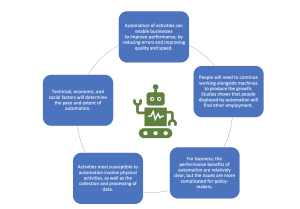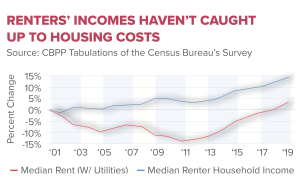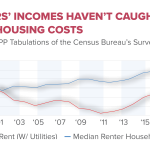Domestic violence remains a pervasive issue, affecting countless individuals and families across the globe. It extends beyond physical harm, touching on psychological scars and financial implications, often influencing women’s empowerment and gender equality. Recent studies underscore how economic self-interest can shape behaviors in relationships, revealing that women engaged in the Rwandan coffee industry may experience reduced domestic abuse during harvest seasons. By analyzing the connection between women’s financial independence and their safety, research advocates for domestic abuse prevention strategies rooted in economic development. As we delve into the intricacies of these issues, it becomes clear that fostering women’s empowerment is not just a moral imperative, but also a crucial step towards sustainable social change.
Interpersonal violence within households, often referred to as domestic abuse, manifests in various forms, affecting emotional and physical well-being. This critical social issue frequently intersects with discussions on women’s autonomy and financial security. As seen in the Rwandan context, the dynamics of the coffee production sector highlight how economic engagement can alter power structures within marriages, leading to diminished rates of violence. Through the lens of gender parity and the economic participation of women, it becomes increasingly evident that effective domestic violence prevention strategies must also embrace empowerment and equitable opportunities for all.
The Impact of Women’s Empowerment on Domestic Violence Rates
Women’s empowerment plays a pivotal role in reducing the rates of domestic violence, particularly in economically developing regions. Research indicates that when women gain financial independence, it translates into greater bargaining power within their relationships. In the context of Rwanda, the coffee industry’s growth has provided numerous women with job opportunities at cooperative mills, enabling them to earn their own income. This newfound economic strength allows women to make decisions about their finances and personal lives, which can lead to a reduction in domestic violence incidents. In fact, studies show that during the harvest season, as women’s income rises, domestic abuse rates tend to decline significantly.
The benefits of women’s empowerment extend beyond mere financial independence; they foster a sense of agency and self-worth. When women are empowered, they are more likely to seek help and report instances of domestic violence. This shift not only helps them escape abusive situations but also creates an environment where men are less likely to exert control through violence due to the economic repercussions associated with harming their partners. Therefore, enhancing women’s economic opportunities is a crucial strategy in domestic abuse prevention, as it disrupts the cycle of violence by tying a man’s economic interests to his wife’s well-being.
Economic Self-Interest and Domestic Abuse Prevention
Economic self-interest serves as a powerful deterrent against domestic violence, particularly within contexts like the Rwandan coffee industry. In Sanin’s research, it was found that when wives worked at cooperative mills, husbands were less likely to engage in abusive behavior, particularly during the high-demand harvest season. This correlation can be attributed to the financial dependency created by shared economic interests, where a husband’s income is increasingly reliant on his wife’s labor. As women contribute more significantly to household income, the costs associated with domestic violence risk become considerably higher, incentivizing men to maintain a non-abusive relationship.
Moreover, economic self-interest influences decision-making dynamics within households. Women who earn an income contribute to household capital, which can lead to shifts in traditional power structures. In villages served by the coffee mills, not only did domestic violence hospitalizations decrease, but women reported they were more involved in decision-making regarding finances and family planning. This active participation highlights a transformation in gender norms, wherein married couples navigate their current economic climate collaboratively. Economic empowerment thus becomes a catalyst for gender equality, ultimately reinforcing the foundations required for effective domestic abuse prevention.
The Role of Gender Equality in Reducing Domestic Abuse
Gender equality is a fundamental factor in addressing domestic violence and enhancing women’s empowerment. Empowered women who have equal access to economic resources and opportunities are better positioned to challenge traditional notions of gender roles that perpetuate abuse. In Rwanda, the increase in women’s participation in the coffee industry not only provides financial benefits but also fosters a culture of equality. As women earn a wage, societal perceptions begin to shift, acknowledging their contributions and capabilities outside the domestic sphere.
Furthermore, gender equality in the workforce correlates with a significant decline in domestic violence rates. Research shows that as women’s status improves and they gain financial independence, they are less likely to tolerate abusive relationships. This empowerment leads to greater awareness of rights and access to support systems, allowing women to break free from violence. Promoting policies that support gender equality in economic settings is therefore essential in crafting effective frameworks for domestic abuse prevention. It paves the way for a safer and more equitable society, where women are not only empowered but also protected from violence.
Exploring the Effects of the Rwandan Coffee Industry on Women
The Rwandan coffee industry has become a beacon of economic opportunity for many women, significantly altering the landscape of gender relations in rural areas. With the rise of cooperative mills, women have transitioned from traditional roles to becoming active participants in the coffee production process, reaping both financial benefits and a sense of empowerment. This shift not only increases household income but also fosters a culture of respect towards women’s contributions, leading to a decline in domestic violence instances. The coffee sector illustrates a successful model of economic self-interest, where women’s work directly impacts their families’ financial stability.
Moreover, the cooperative model within the coffee industry empowers women by creating networks of support and collaboration. Women working alongside one another in mills nurture a sense of community and solidarity, which can further protect them from domestic violence. These cooperative environments often lead to shared resources and training, enhancing women’s skills and independence. This support network is critical in helping women navigate the challenges of domestic abuse and recover from it. Ultimately, the growth of the Rwandan coffee industry symbolizes a potent vehicle for women’s empowerment, economic self-interest, and a foundation for preventing domestic violence.
The Importance of Domestic Abuse Legal Frameworks
Legal frameworks addressing domestic abuse are crucial in creating a safe environment for women in the workforce. Rwanda’s 2008 domestic violence law, which criminalized spousal abuse and facilitated women’s rights to divorce, represents a progressive step towards protecting women from violence. Such laws not only empower women legally but also serve as deterrents against abusive behavior, showcasing a societal commitment to gender equality. By providing women with the legal means to escape abusive situations, the law complements economic empowerment efforts in the coffee industry, creating a multi-faceted approach to domestic abuse prevention.
However, it is essential for these legal protections to be effectively enforced to ensure their impact is felt in the daily lives of women. Implementing training programs for law enforcement and judicial officials can improve awareness around domestic violence issues, ensuring that women seeking help are supported appropriately. Moreover, complementing legal frameworks with economic strategies, like those in the coffee industry, strengthens the overall impact. When women are aware of their rights and have economic opportunities, they can challenge abusive dynamics with greater confidence, leading to a more just and equal society.
Rwanda’s Approach to Gender Equality and Economic Development
Rwanda presents a unique case study in the relationship between gender equality and economic development, particularly in its approach to integrating women into the workforce. The government’s commitment to equitable policies has facilitated women’s access to employment opportunities in various sectors, notably in the vibrant coffee industry. This integration has significantly contributed to economic growth while promoting gender equality. Enhanced access to jobs and income-generating activities empowers women, allowing them to stand up against domestic violence and violence in general, creating a safer, more cohesive community.
In addition to economic empowerment, Rwanda’s focus on gender equality has reshaped social norms around women’s roles. Initiatives aimed at raising awareness about women’s rights and promoting female leadership are vital in engaging communities in discussions about domestic violence. Strengthening these efforts through educational programs and workshops will further transform attitudes and behaviors, ensuring that progress is sustainable. Rwanda’s holistic approach showcases how strategic economic development intertwined with gender equality creates a robust framework for reducing domestic violence and fostering a culture of empowerment.
Building Support Networks to Combat Domestic Violence
Building support networks is a crucial element in combating domestic violence and enhancing women’s empowerment in contexts like the Rwandan coffee industry. When women unite within cooperatives, they not only gain economic resources but also a safety net where issues such as domestic abuse can be addressed more openly. Support from peers who share similar experiences fosters an atmosphere of understanding, enabling women to express their struggles without fear of judgment. This network becomes invaluable in providing emotional and practical support, building resilience against domestic violence.
Moreover, support networks can facilitate access to resources that women may otherwise find difficult to obtain alone, such as legal aid, counseling, and educational opportunities. By creating informed, cohesive communities, women can better advocate for themselves and each other, leading to a collective effort to challenge and change harmful societal norms around domestic violence. Therefore, enhancing these networks is essential in the fight against domestic abuse, reinforcing the link between women’s empowerment and economic welfare.
The Future of Women in the Rwandan Economy
The future of women in the Rwandan economy looks promising as initiatives continue to support their empowerment and economic participation. With the Rwandan coffee industry leading the way in creating job opportunities, the potential for women to thrive economically is substantial. As these women gain financial independence, they are better equipped not only to contribute to their families but also to challenge entrenched societal norms regarding gender and domestic violence. Ensuring that these initiatives remain sustainable will be key to continued progress.
In looking forward, it is vital to focus on education and skill development alongside economic opportunities. Equipping women with the necessary tools to succeed in competitive markets will enhance their standing in the community, thereby making them less vulnerable to domestic abuse. Furthermore, integrating educational programs about gender equality into community initiatives can deepen the impact of economic empowerment efforts. As Rwanda continues to develop, a comprehensive strategy that involves education, economic opportunity, and legal protection will create a lasting legacy for women in the economy.
Frequently Asked Questions
How does domestic violence correlate with women’s empowerment in Rwanda’s coffee industry?
Studies show that women’s empowerment in Rwanda’s coffee industry leads to decreased rates of domestic violence. As women earn wages from coffee processing, they gain financial independence, which increases their bargaining power within the household and reduces the likelihood of abuse during peak harvest seasons.
What role does economic self-interest play in domestic violence among coffee farming couples?
Economic self-interest significantly influences domestic violence rates. During coffee harvests, husbands rely on their wives’ labor to boost income, creating a disincentive for abuse. The study indicates that when women’s income directly impacts family finances, domestic violence incidents decrease.
Why is the Rwandan coffee industry’s expansion important for domestic abuse prevention?
The expansion of the Rwandan coffee industry provides women with employment opportunities, which are crucial for domestic abuse prevention. By earning their own income, women can improve their living conditions and reduce dependency on abusive partners, thereby fostering gender equality and safety.
How can promoting gender equality within the coffee industry help prevent domestic violence?
Promoting gender equality in the coffee industry empowers women economically, resulting in lower domestic violence rates. When women have equal participation in labor, they not only contribute to the family income but also gain confidence and decision-making power in their relationships.
What impact has Rwanda’s domestic violence law had on the economic empowerment of women?
Rwanda’s domestic violence law has empowered women by providing legal support against spousal abuse, allowing them to pursue economic opportunities. This legal framework enhances the likelihood of women participating in the coffee industry, which in turn can lead to a reduction in domestic violence.
Can cash transfer programs contribute to domestic violence prevention?
Cash transfer programs can contribute to domestic violence prevention by providing women with financial resources. However, it’s important that these programs are designed to empower women, ensuring they have supportive social environments that can mitigate the risk of increased violence while accessing funds.
What is the significance of cooperative mills in reducing domestic violence?
Cooperative mills are significant in reducing domestic violence as they offer women seasonal employment, facilitating economic independence. Research shows that in areas with these mills, there is a notable decrease in self-reported domestic violence incidents during the harvest period.
How did Deniz Sanin’s research connect economic opportunities and domestic violence?
Deniz Sanin’s research established a connection between increased economic opportunities for women in Rwanda’s coffee industry and a decrease in domestic violence. Her findings highlight how women’s income can shift power dynamics within households, contributing to their safety and well-being.
What are the key conditions for women’s employment to effectively reduce domestic violence?
For women’s employment to effectively reduce domestic violence, two key conditions must exist: the ability for women to threaten divorce, ensuring they can leave abusive situations, and economic contexts where husbands directly benefit from their wives’ labor, thus discouraging abuse.
How can the coffee industry serve as a model for domestic abuse prevention in other sectors?
The coffee industry can serve as a model for domestic abuse prevention in other sectors by demonstrating how economic empowerment of women, through formal employment and fair wages, can lower violence rates. Lessons learned can be applied to various industries to promote safe and equitable work environments.
| Aspect | Details |
|---|---|
| Research Focus | Study on domestic violence and women’s financial empowerment in Rwanda. |
| Methodology | Analysis of Rwanda’s coffee industry and domestic violence hospitalizations. |
| Key Finding | Employment at coffee mills correlates with a decrease in domestic violence incidents. |
| Statistical Evidence | Domestic violence incidents fell by 29% in areas with newly opened coffee mills. |
| Impact of Income | Increased household income gives women more bargaining power. |
| Contributing Factors | The necessity of divorce as a credible threat and economic benefits for husbands. |
Summary
Domestic violence remains a critical concern globally, but recent studies highlight the positive impact of women’s financial empowerment on reducing its prevalence. Research in Rwanda shows that employment opportunities for women in the coffee industry lead to a significant decrease in domestic abuse during harvest times, as women gain more financial independence and bargaining power. This connection emphasizes the importance of economic stability in fostering safer domestic environments.











